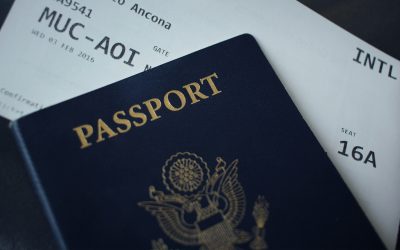Whether they are from Portugal or another nation, companies find it difficult to figure out company tax in Portugal. Companies may follow the guidelines, create wise tax plans, and benefit from changes in tax legislation, however, with the correct guidance and knowledge base. The nuances of company tax in Portugal are examined in this in-depth paper. It provides helpful knowledge and doable guidance to enable your company to flourish in this always-changing corporate environment.
Getting to Grips with the Basics of Company Tax in Portugal
Companies Based in Portugal and Taxes on Global Income
Portuguese companies have to pay taxes on all of their income wherever they generate it. Portuguese companies have to pay taxes on earnings from all across the world, including money produced through activities or permanent establishments (PEs) abroad. As long as they follow specific guidelines, they might decide to exclude profits and losses from a foreign PE.
Non-Resident Companies and Portugal-Source Income
Companies without a physical presence in Portugal but having income tied to a PE still have to pay Portuguese corporate income tax (CIT). Companies not headquartered in Portugal who profit from Portuguese sources also have to pay a particular withholding tax (WHT) on their earnings. Where the receiver is from and the type of income it is will affect these rates.
Corporate Income Tax (CIT) Rates and Surtaxes
On mainland Portugal, the normal CIT rate is 21%. With a rate of 14.7%, the Autonomous Regions of Madeira and the Azores had lower Still, these rates have many meanings:
- Small and medium-sized enterprises (SMEs) and small-medium capitalization (Small Mid Caps) companies can take advantage of a lower CIT rate of 17% (11.9% in the Autonomous Regions) on their first €50,000 of taxable income.
- Organizations that qualify as startups pay a 12.5% CIT rate on their first €50,000 of taxable income.
- Some entities whose main activity isn’t commercial, industrial, or agricultural have to pay the 21% CIT rate (14.7% in the Autonomous Regions).
Apart from the CIT rate, companies could have to pay various surcharges. These comprise a local surtax (Derrama) of up to 1.5%, a state surtax (Derrama Estadual) between 3% and 9%, and a regional surtax (Derrama Regional) in each of the Autonomous Regions.
Understanding the Ins and Outs of Income Calculation and Write-offs
Income Calculation
Calculating a company’s taxable income in Portugal calls for careful effort. This procedure examines several factors, including what kind of firm it is while counting its income and how it manages several kinds of money entering it. Work out the correct CIT amount owed by knowing these specifics.
Deductible Expenses
Portugal’s tax laws clearly state the entire set of guidelines for the deductions from company expenses allowed. These address daily expenses as well as extraordinary spending. Whether you can write off these costs will significantly affect the tax your business pays. You should pay great attention to these guidelines if you want to maximize lawful deductions and maintain the lowest potential tax levels.
Making the Most of Tax Credits and Incentives
Tax Credits for Investing and Coming Up with New Ideas
The Portuguese government offers tax credits and incentives meant to increase investment, inspire fresh ideas, and expand particular sectors. These comprise the SIFIDE tax credit to assist research and development (R&D) activities, the RFAI tax credit to invest in less developed regions, and the AICEP tax credit to fund important strategic industries. Though it doesn’t cover everything.
Help for Startups and Small Businesses
Startups and SMEs in Portugal pay less corporate income tax, as we have already mentioned, which provides a significant boost when they are just getting started. Moreover, companies in Madeira and the Azores could enjoy even higher tax discounts, therefore increasing their competitiveness.
Special Tax Regimes for the Madeira International Business Center
The Madeira International Business Center (MIBC) has a unique tax system with a CIT rate of 5% for eligible companies. This, along with the announced cut in personal income tax (PIT) on dividend payouts, makes Madeira more appealing to businesses looking for a tax-friendly place to operate.
Understanding the Ins and Outs of Withholding Taxes
Withholding Taxes on Payments to Non-Residents
Money made in Portugal that belongs to foreign entities without a permanent establishment in the country has to pay special withholding tax rates. These rates can change based on what kind of money it is where the recipient is from, and what tax agreements apply. It’s essential to follow withholding tax rules to steer clear of possible fines and to make sure international transactions go.
Withholding Tax Cuts in Madeira
WHT charges for non-residents have been lowered in the Madeira budget proposal for 2024 Not considering various forms of income and accounts, the WHT rate from the mainland has fallen from 28% to 19.6% in the Autonomous Region of Madeira. Madeira’s increased tax competitiveness resulting from this improvement appeals more to foreign companies.
Ensuring Compliance and Mitigating Risks
Tax Administration and Reporting Requirements
Companies following Portugal’s corporate tax laws have to report as mandated, turn in accurate tax forms, and fulfil tight deadlines. Should they fail, they may incur fines additional expenses, and legal action. Expert advice can help one avoid pitfalls and manage difficult jobs more easily.
Dealing with Transfer Pricing and Anti-Avoidance Rules
Portugal has tightened transfer pricing policies and implemented anti-avoidance measures recently to combat tax evasion and maintain a fair tax system. Businesses have to record their intra-group deals, follow the arm’s length rule, and be ready to justify their pricing decisions to the tax authorities. Expert advice in this field will enable companies to comply with regulations and reduce their risk of tax audits or disputes.
Using Tax Treaties and Working Together
How to Use Double Tax Treaties
Portugal boasts a broad network of double taxation treaties (DTTs) with countries all around the world. These agreements affect businesses’ capacity to fine-tune their worldwide tax plans, obtain relief from double taxation, and access reduced WHT rates. Multinational companies doing business in Portugal must keep current on the pertinent DTTs and their provisions.
Participation in International Tax Initiatives
Portugal participates in numerous international tax projects like the Base Erosion and Profit Shifting (BEPS) plan and the EU’s Anti-Tax Avoidance Directive (ATAD) implementation as a member of the European Union and the Organization for Economic Cooperation and Development (OECD). Businesses must stay current with these developments and ensure their tax strategies fit the changing worldwide tax environment.
Getting Expert Help and Advice on Company Tax in Portugal
Working with Tax Advisors
Dealing with Portugal’s complicated web of corporate tax legislation usually requires the assistance of specific tax experts. Working with legal professionals, tax consultants, and reputable accounting firms can provide very important direction. This guarantees that your business makes the most of its tax strategies, complies with regulations, and seizes the presented opportunities.
Using Technology and Data Analysis
The growing complexity of business taxes has created a need to use advanced tech solutions and data-based methods. Using tools and platforms to help with tax planning, following rules, and reporting can help companies improve their processes. It can also boost decision-making and keep them ahead in the always-changing tax world.
The information in this article on “company tax in Portugal” is for general informational purposes only and is not intended to constitute legal advice. While every effort has been made to ensure the accuracy of the content, laws and legal procedures can change, and the specifics of each case can vary widely. Therefore, readers are advised to consult a qualified professional or attorney in Portugal for advice tailored to their circumstances before taking action. This article does not create an attorney-client relationship between the reader, the authors, or the publishers. The authors and publishers are not liable for any actions taken or not taken based on the content of this article.
The founding of Madeira Corporate Services dates back to 1996. MCS started as a corporate service provider in the Madeira International Business Center and rapidly became a leading management company… Read more




